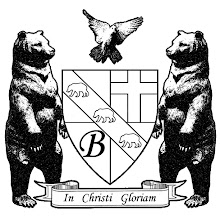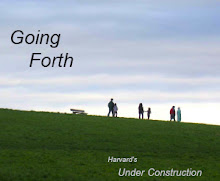 Today is the Solemnity of Christ the King, a feast that, in the current Church calendar, falls on the Sunday before the first Sunday of Advent. It was instituted in 1925 by Pope Pius XI in his encyclical Quas Primas. Pope Pius XI was concerned with the many problems of the world, which he saw as stemming largely from man's rejection of the sovereignty of Christ and the fact that "the majority of men had thrust Jesus Christ and his holy law out of their lives." He wanted to see a "restoration of the Empire of Our Lord," as he explained:
Today is the Solemnity of Christ the King, a feast that, in the current Church calendar, falls on the Sunday before the first Sunday of Advent. It was instituted in 1925 by Pope Pius XI in his encyclical Quas Primas. Pope Pius XI was concerned with the many problems of the world, which he saw as stemming largely from man's rejection of the sovereignty of Christ and the fact that "the majority of men had thrust Jesus Christ and his holy law out of their lives." He wanted to see a "restoration of the Empire of Our Lord," as he explained:"15. This kingdom is spiritual and is concerned with spiritual things. That this is so the above quotations from Scripture amply prove, and Christ by his own action confirms it. On many occasions, when the Jews and even the Apostles wrongly supposed that the Messiah would restore the liberties and the kingdom of Israel, he repelled and denied such a suggestion. When the populace thronged around him in admiration and would have acclaimed him King, he shrank from the honor and sought safety in flight. Before the Roman magistrate he declared that his kingdom was not of this world. The gospels present this kingdom as one which men prepare to enter by penance, and cannot actually enter except by faith and by baptism, which, though an external rite, signifies and produces an interior regeneration. This kingdom is opposed to none other than to that of Satan and to the power of darkness. It demands of its subjects a spirit of detachment from riches and earthly things, and a spirit of gentleness. They must hunger and thirst after justice, and more than this, they must deny themselves and carry the cross.
"16. Christ as our Redeemer purchased the Church at the price of his own blood; as priest he offered himself, and continues to offer himself as a victim for our sins. Is it not evident, then, that his kingly dignity partakes in a manner of both these offices?
"17. It would be a grave error, on the other hand, to say that Christ has no authority whatever in civil affairs, since, by virtue of the absolute empire over all creatures committed to him by the Father, all things are in his power. Nevertheless, during his life on earth he refrained from the exercise of such authority, and although he himself disdained to possess or to care for earthly goods, he did not, nor does he today, interfere with those who possess them."
The questions I think we have to keep asking ourselves are, "Is Christ true?" and "If so, what does that mean for me?" Because if Christ is true, if He died and rose again, if He is the Son of God, then He is the King, whether we like it or not. He either is or He isn't. And if He is, then He is the Standard by which all else is measured, He is our Savior, He is the Source and Sustainer of our very being.
It's hard to believe that, and it will take eternity to understand it, but the most difficult part is to submit to it. It takes great humility to submit to the sovereignty of Christ, and we can't do it without His grace. Even with His grace, none of us can do it perfectly. We will all inevitably stumble, and often. Yet we are still called to submit ourselves to Christ, to continually strive to surrender our own desires to His perfect will.
It sounds scary, and it sometimes is, but this submission to Christ is ultimately liberating. Because Christ the King is not a tyrannical dictator, but an extravagantly loving Good Shepherd Who desires nothing but the best for all of us.


No comments:
Post a Comment